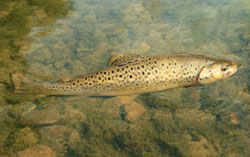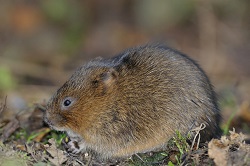Parasites point to environmental changes
Scientists with the 'From communities to individuals: Development of an early warning system to assess the relationship between climate warming and pollution in European freshwater ecosystems' (Parawarm) initiative studied the effect of small-scale changes in temperature and metal contamination on parasites found in freshwater fish. The data they collected was used to determine the interaction between parasitism and pollution at a time of fluctuating temperatures in climate. Parawarm scientists analysed fish and their parasites, bottom-dwelling invertebrates, water and sediment samples from three rivers in North Rhine-Westphalia, Germany – the Ruhr, Lenne and Lippe. The idea was to draw up the composition of parasite populations in two model fish species, the brown trout and the European perch. In addition, they conducted a statistical analysis of ambient temperature in water and sediments as well as parasite tissue metal concentration levels. Linking ecological data to pollutant metabolism may give new insight into the response of parasite communities to environmental change. Prediction of possible outcomes for host-parasite interaction could be translated into a set of minimum index values to detect pollution during the global warming phenomenon. Analysis of the vast amount of data indicated that parasite community composition and structure showed significant differences in zones of cold water input. Parawarm researchers proposed this may be due in part to effects of cold water on communities of free living animals acting as intermediate hosts for the parasites under study. With future studies in mind, the results gave an indication that the rivers Ruhr and Lenne were suitable for study of the combined effects of pollution and temperature. One parasite, a thorny-headed worm, Echinorhynchus truttae, appeared to be a better indicator of aquatic metal pollution than its host, the brown trout. Reasons for subtle changes in parasitic communities are complex and can relate to synergistic and or antagonistic effects of multiple stressors. Parawarm data promises to herald simple warnings of how ongoing and future climate change may alter risks from chemical pollution in a freshwater environment.







